Happy Days isn’t the sort of TV show I would typically turn to, if I wanted to learn about baseball history. But it hit a home run in the episode, “You Go to My Head,” which follows Richie Cunningham's descent into psychotic madness. OK, not quite. He's fine, but he goes to see a psychiatrist, an event that rattles his parents. But as for that baseball history mentioned, this is an episode that mentions the late, great Jimmy Piersall.
If you’re not a baseball fan, don’t leave. Most of my baseball knowledge comes from watching the movies The Natural and Field of Dreams, and so it's not like you're about to get lost in a labyrinth of baseball trivia. In fact, I had no idea who Jimmy Piersall was until I recently watched “You Go to My Head" -- and even then, when the Happy Days episode was over, I still didn't know.
As any regular readers of The TV Professor know – all six or seven of you – most of this blog takes a look at what we can all learn from watching TV reruns. Well, back in 1974 when Tom Bosley as Howard Cunningham mentioned Jimmy Piersall, presumably most of the TV audience knew exactly who he was talking about.
I had no clue, and so soon after that episode, I found myself reading old newspaper articles about Jimmy Piersall.
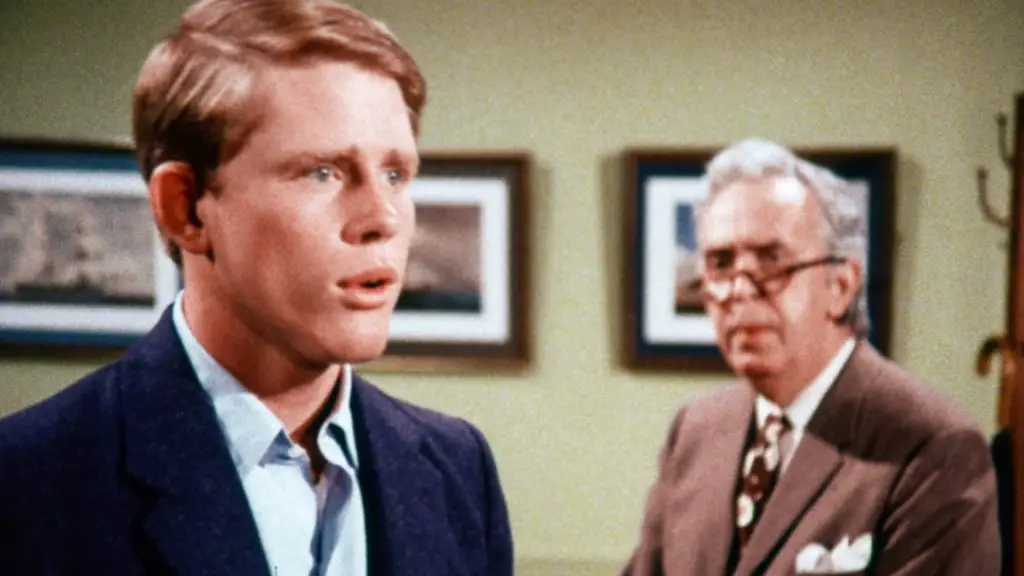
Who was Jimmy Piersall? And why was Howard Cunningham talking about him?
So in this particular Happy Days episode, “You Go to My Head,” our wholesome hero, Richie Cunningham, thinks he may be in need of a psychiatrist. As we all know, the teenage years can be rough, and by high school, a lot of us are wondering if we’re normal. Plenty of adults, too, I suspect.
Well, when Richie has a conversation with a brainy student named Carole Lipton (Christina Hart, who, by the way, would later play Mr. Roper's niece on Three's Company and later Mr. Angelino's daughter on the same series). Richie has a crush on Carole, and he learns that she has been reading a textbook called, “Abnormal Psychology.”
She may have been hitting the books a little too hard. Carole quickly psychoanalyzes Richie when she learns he is a middle child.
“They always get the least attention, and they get the most messed up,” Carole says.
(If you’re thinking, “Richie Cunningham was a middle child?,” then you have forgotten that during the first couple of seasons, Richie had an older brother named Chuck. More on Chuck near the end of this post.)
So Richie starts reading “Abnormal Psychology” and quickly decides that he has some issues that need to be worked out with a psychiatrist.
He later talks things over with Ralph Malph, positing that he just may have a screw loose. Ralph will have none of it. He doesn’t think Richie is crazy, or “strange,” as his red-haired, freckled faced friend puts it.
“It's all down here in black and white,” Richie insists, referring to the book. “You know how I'm afraid to talk to strange girls? Well, it's in here. I daydream a lot. It's in here. I fantasize all the time. I pretend I'm Mickey Mantle. It's all in here.”
Richie also points out that when he started reading the book in his closet, to see if he was claustrophobic. And guess what? He was, indeed, uncomfortable.
“Maybe you’ve got a fear of coats,” Ralph suggests.
Moments later, Ralph tries to buck his friend up. "Aw, come on, Richie. You're no crazier than the rest of us. I mean, we all got our mental quirks. Look at Potsie... You think he's normal? He's not going to any head shrinker. And look at the Fonz, supercool Fonzie. Fonzie, with his, 'Ay-y-y-y.' That's a little... that's really sicko, when you get down to it,” Ralph says.
(Interesting foreshadowing, since two seasons later, the Fonz will see a psychiatrist to discuss a recent penchant for getting into street fights.)
Moments later, very true to character, Ralph makes it clear that if Richie shares what he said about the Fonz being a little sicko, he’ll deny every word. Richie promises to not say anything.
So to speed up this story, Richie sees a psychiatrist and then informs his parents about the visit. Richie shares this bit of information with his parents because the psychiatrist wants to talk to Mr. and Mrs. Cunningham.
And that’s how we get to Jimmy Piersall.
Richie wants to know if his dad is upset that he saw a psychiatrist (remember, this is a 1970s TV show portraying the 1950s when therapy wasn’t quite as accepted as something that normal, healthy people can and may want to do -- to stay normal and healthy).
Mr. C says that he isn’t upset and points out to his wife and son how a psychiatrist helped “that baseball player, uh, Jimmy Piersall. He doesn’t climb up backstops any more.”
“Richard never climbed up backstops,” Mrs. Cunningham said. “Did you, dear?”
“No, Mom,” Richie says.
But for me, name dropping Jimmy Piersall pulled me out of the episode entirely. I kept thinking, “OK, wait a minute. Jimmy Piersall? That’s obviously an historical reference. Who is he? And why was Jimmy Piersall climbing backstops?”
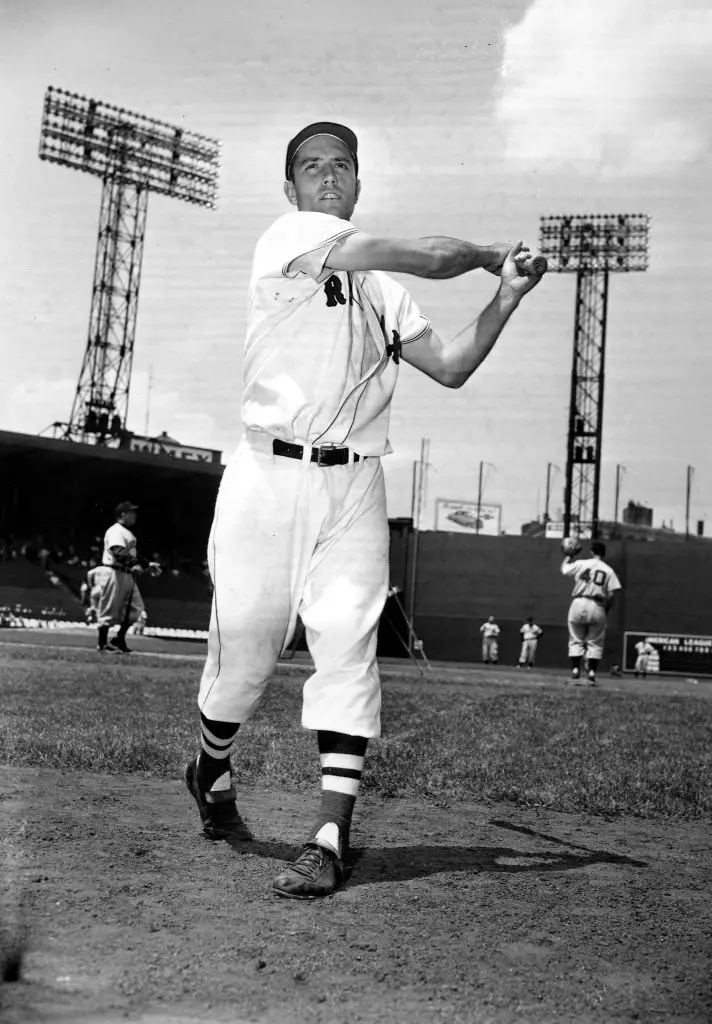
So who was Jimmy Piersall?
After two years in the minors, Jimmy Piersall was a major league baseball player from 1950 to 1967. His batting average was .272, and he hit 104 home runs over those 17 years. (I assume that's pretty good. As noted, I'm not a baseball expert.) Piersall played for the Boston Red Sox, the Cleveland Indians, the Washington Senators, the New York Mets and the Los Angeles and California Angels.
He was a really good baseball player – he wouldn’t lasted so long as a baseball player if he wasn’t – but he is known more for his personal problems than his professional sports prowess. That’s because in 1952, Jimmy Piersall had what everyone described at the time as a nervous breakdown.
It was May 24 of that year when Piersall seems to have snapped. He lobbed insults at New York Yankees’ second baseman Billy Martin (who would later become the team manager) and soon the two were in a brawl inside a tunnel underneath the stands. The fight was broken up, but then Piersall went to the clubhouse to change his bloodied uniform, and then he got into a fight with one of his teammates. He was benched. Piersall began sobbing.
In the weeks that followed, Piersall started acting, well, not so violent as much as weird. He spread his arms like an airplane while running the bases, and he imitated the mannerisms of other players.
Fans loved it. Piersall's teammates, not so much.
Some of what Piersall did was funny and in good fun. A sampling of some of Piersall's antics:
Piersall was said to have done many things over the course of his baseball career, not all of them during these troubled times. A quick sampling:
· There was the time he shot an umpire in the face
with a water pistol.
· And another time when he sprayed a water pistol
on home plate.
· And the day he threw an orange at the scoreboard
at Comiskey Park.
· In the 1960s, he stepped up a bat wearing a
Beatles wig.
· During games, he played "air guitar" on his bat.
· He led cheers for himself in the outfield during
breaks in play. Because, well, why not?
· He was ejected from a game after running back and forth in the outfield, hoping to distract Ted Williams, who was at bat.
But it was the violence and emotional outbursts that scared his coach and teammates. Piersall was demoted to the minors, and things got worse. He was ejected from four games.
Apparently Piersall recognized that he was sabotaging his career and life because the 22-year-old Red Sox outfielder, evidently on the advice of his doctor, checked himself into Danvers State Hospital in Danvers, Massachusetts, for what some papers called, "nervous exhaustion” or a “nervous breakdown.”
Piersall, however, was soon transferred to Westboro State Hospital. It wasn’t exactly a transfer he had asked for. He was drugged and given electroshock therapy and woke up in restraints, unable to remember much of the events from the last year.
But he got better.
Years later, he was diagnosed as a manic depressive.
After Jimmy Piersall’s nervous breakdown
It helped Piersall’s morale and mental health that his teammates visited him, and he was cheered by the hundreds of letters from fans. But Piersall was stunned when he was invited back to the Red Sox for the 1953 season.
From there, things started looking up. Piersall resumed his baseball career in right field, and two years later, moved to centerfield, and was soon known as an outstanding defensive outfielder. He also wrote a book called Fear Strikes Out, published in 1955 and then made into a movie in 1957, starring Anthony Perkins (as Jimmy Piersall) and Karl Malden (as Jimmy’s father, John Piersall).
The movie played up an antagonistic relationship between the baseball player and his abusive father. Jimmy wasn’t a fan of the movie.
"I loved my father," Piersall said in 1985, long after retiring from baseball. "He wanted me to have something he didn't have. We had a great relationship. That movie didn't show that. It was crap."
And what about Howard and Marion discussing Jimmy Piersall, climbing up backstops?
He did some weird things, like taking bows after catching balls, but Piersall never actually did that. (By backstops, we’re talking about the metal cage-like structure that protects fans directly behind the plate from getting beaned in the face by a fastball.)
However, in the movie Fear Strikes Out, Perkins, playing Jimmy Piersall, memorably climbs a backstop in a climactic scene, and that’s what the Cunninghams are commenting on.
Which, incidentally, would mean that the second season of Happy Days is set in 1957 (or possibly after) and that presumably, Howard and Marion Cunningham had recently watched the film in theaters.
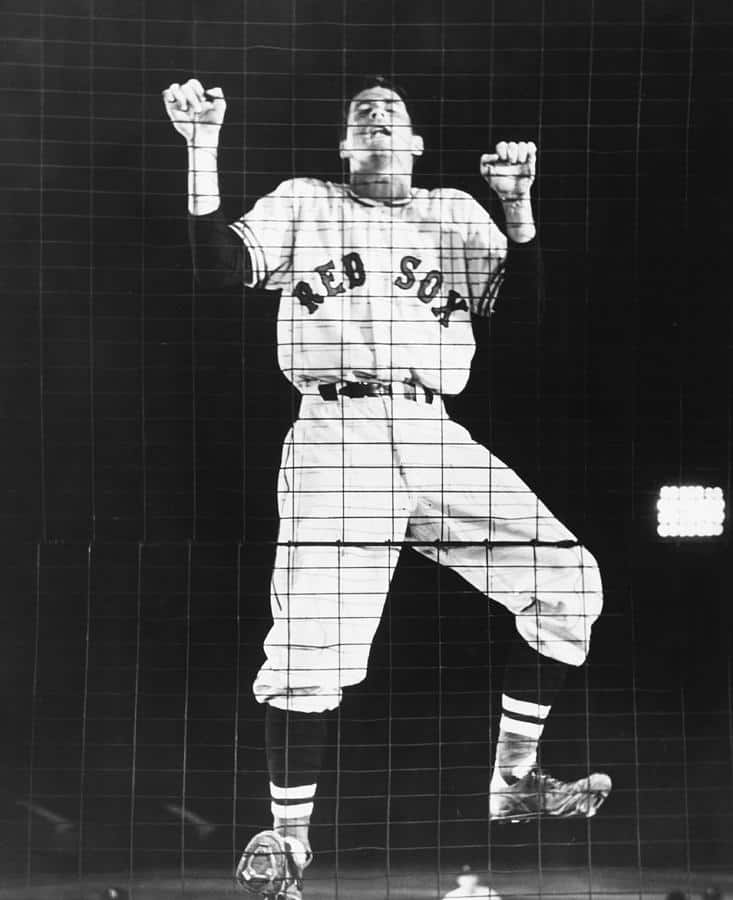
After Jimmy Piersall’s baseball career
Piersall, who died in 2017 at the age of 87, had a long, successful career after baseball, mostly by sticking to working in sports. After a series of various jobs in football and baseball, he became a broadcaster in 1977 for the Chicago White Sox.
Unfortunately, Piersall – possibly due to his manic depression – couldn’t always control his temper. In 1980, he ended up choking a sports reporter. He also got into a fight with his boss’s son. Soon after that, he spent three weeks at the Illinois Masonic Hospital to recoup and rest.
The following year, Piersall was suspended from his job for calling baseball wives, “horny broads.” In 1983, he was fired from his job altogether. He then went to work for the Cubs for over a decade but was eventually fired for making inappropriate comments. After that, he hosted a sports talk show in Chicago where he was more or less free to say whatever he wanted.
Piersall was the first to admit that his antics had helped his career. Of the years before he was hospitalized, he said, "Nobody knew me. But because I had a stigma and there was such a big thing made out of it, I got recognition. You ask anybody who knows sports in this country, and they know of me. I wasn't a Ted Williams or a Joe DiMaggio, but I got more publicity than they did."
He also theorized late in life, after he retired: "If I hadn't gone crazy, I'd just have been known as a good defensive baseball player, maybe still having a tough time surviving, like most of the guys are. But I took advantage of it and made a lot of money. I raised nine kids, and I don't have to work any more."
In fact, it’s too bad that Richie Cunningham didn’t meet up with Jimmy Piersall himself shortly after he was name dropped in Happy Days. Piersall could have put Richie’s mind at ease. It wasn’t the most politically correct thing to say, but Piersall once remarked, “Probably the best thing that happened to me was going nuts. Nobody knew who I was until that happened.”
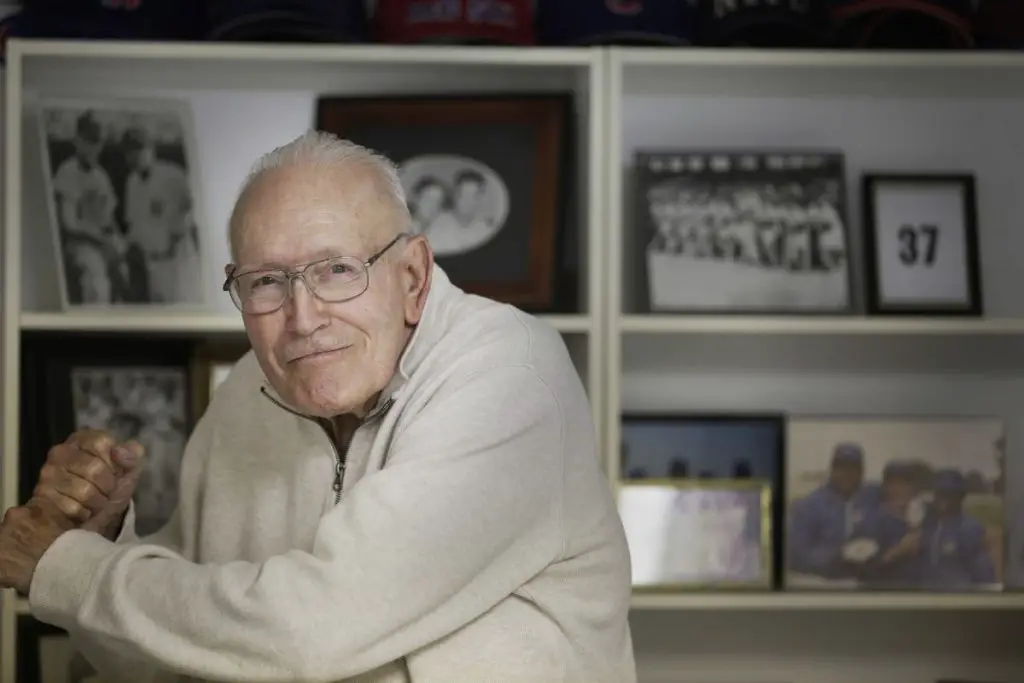
Stray Historical Observations
- So earlier, we mentioned Chuck, Richie’s older brother. He was played by three different actors – Ric Carrott in the pilot episode, and then Gavan O’Herlihy and then Randolph Roberts. Chuck was around sporadically in the first season and briefly at the start of the second season, and then he was never to be seen or spoken of again, leaving the TV audience to imagine what happened. Was Chuck involved in such a horrific death that his family could never think to bring him up again? Or maybe Chuck Cunningham joined a cult and refused to have anything to do with the Cunninghams, and grief kept the family from saying anything about him, at least in front of a television studio audience? Fans may never know.
- While Jimmy Piersall was mentioned in Happy Days, he actually appeared in an episode of The Lucy Show. Lucy Carmichael (Lucille Ball, of course) goes to an aquarium that is hosting “Jimmy Piersall Day” and takes her son, Jerry (Jimmy Garrett). Jerry gets a baseball signed by Piersall, and then somehow Lucy ends up throwing the ball into water and winds up swimming with a dolphin. You know, typical Lucy shenanigans.
- "You Go to My Head," the title of this Happy Days episode, is apparently an in-joke for any fan of the 1938 classic song, first recorded by the dance band, Larry Clinton and His Orchestra. It was later covered by Billie Holiday and Frank Sinatra covered, among others.
- There is a fun bit of dialogue in “You Go to My Head” that references not just how psychology was viewed back in the 1950s but nuclear war, along with a shout out to the famous newspaper advice column. All in three lines of dialogue.
Howard: Well, my side of the family is perfectly normal, Marion. I mean, they don’t even have to read, "Dear Abby."
Marion: Really? What about your Aunt Louise, who lives in a bomb shelter?
Howard: When the big one drops, who’ll be crazy then? Huh? Huh?
Where to watch Happy Days (at the time of this writing): Happy Days – at least, a couple seasons’ worth -- can be found on PlutoTV and ParamountPlus.
Articles similar to this Happy Days story: You might enjoy this look at what you can learn about finding a therapist by watching Monk episodes.

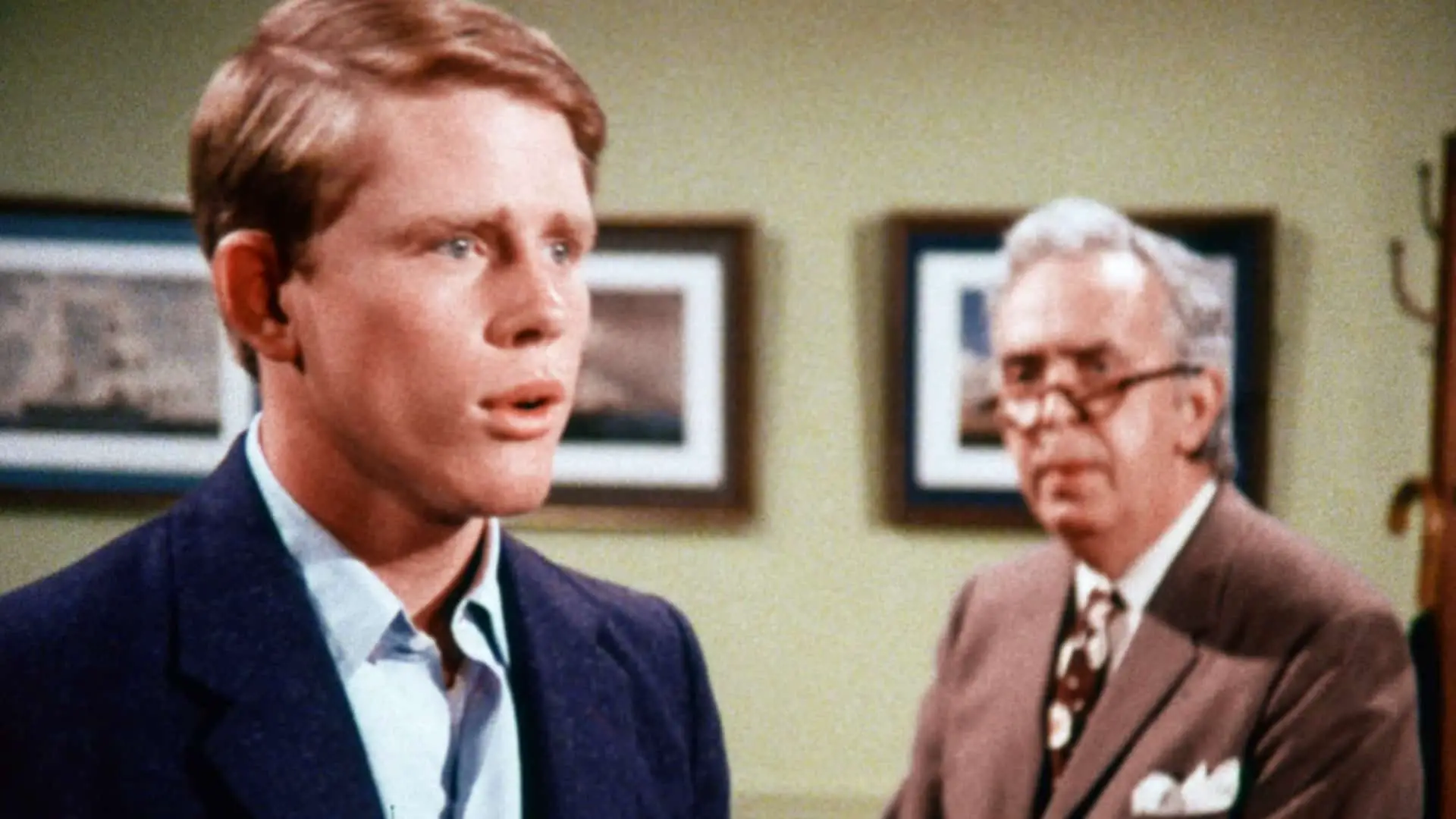
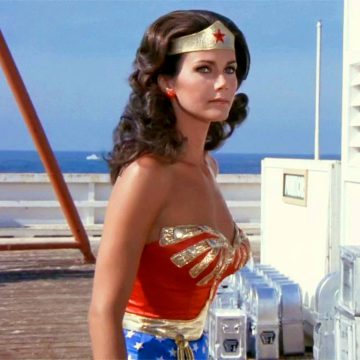
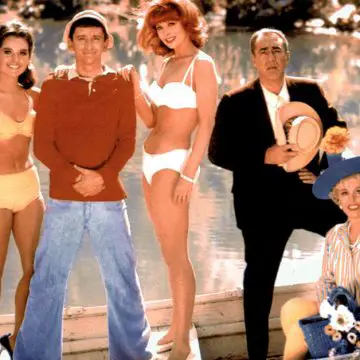
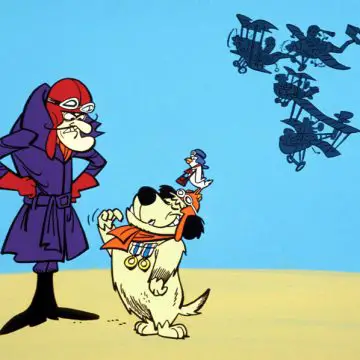
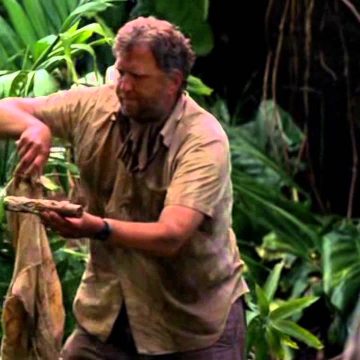
Leave a Reply